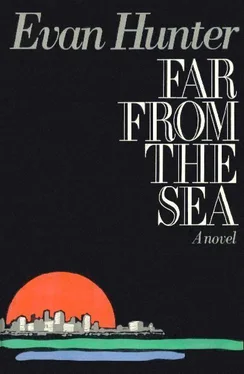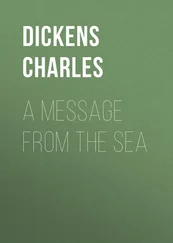He could have made a fortune, too, David supposed, with the men’s clothing store he started in the latter part of 1940 ( was , in fact, making money enough to afford a permanent address for a while) if only half the young men in America hadn’t been drafted in 1942, thereby drastically reducing the demand for civilian attire. (“How can you operate a business when your only customers are twelve-year-olds and cockers ?”) The business went under in the fall of 1943, just after David’s twelfth birthday. When the war ended, David’s father opened a new store grandly called Weber’s Army & Navy Surplus Supply Outlet, a good idea in that many such stores were doing good business. Maybe that was the trouble. Maybe there were too many of them, or maybe he’d opened in a bad location, or maybe — who the hell knew? He finally sold his entire stock to a chain store at an 80 percent discount. “It was all a matter of timing,” he said later. “If I just could’ve waited till the hippies started...”
By the time “the hippies started” — David set the date as approximately the same time the Beatles achieved recognition and prominence, sometime in 1964 — his father had been through at least another dozen failed businesses, and David had been through the Korean War, four years of college, three years of law school, a wedding, an apprenticeship with Dolger, Pierce and Parsons, the birth of his son, and the formation of his own law firm. Two years after that, David established the trust for his father, the man who’d “worked hard” for every nickel he had. However many nickels he now possessed, David knew, had been generated by the trust. Whatever David inherited from his father would really be David’s own, anyway. He was his father’s sole beneficiary; he knew because he had drawn the will himself — well, wait, that wasn’t quite true. He had drawn the will ten years ago. Stephen had been alive then; his father had willed him his stamp and plate collection.
The stamps and plates were no surprise. His father had been an inveterate collector for as long as David could remember. He collected everything. When David was growing up, his father was always counting coins (he stopped collecting those when things got really bad), or pasting stamps into albums, or sorting through first-day covers, or cutting out articles from newspapers (a residual habit from the days of his clipping bureau). He sent away for anything that captured his limitless fancy. David caught the bug — well, there, he thought, that of him is in me, or at least was. He sent away for a Tom Mix Six-Shooter, and a Little Orphan Annie Shaker, and a ring The Shadow sent you that glowed in the dark like Blue Coal, and another ring that you could look into and see whoever was behind you. He sent away for Omar the Mystic code books and Dick Tracy badges. He waited for the mail to come each day, just the way his father waited for the mail to come. He constantly searched the newspapers and magazines for new opportunities to send away for something exciting, just the way his father did.
“A chip off the old block,” his father said. “Ike and Mike, we look alike.”
“A lot of junk ,” his mother said.
She was always telling him to get rid of it.
“Clear out all this junk, and I could make a nice room for my sewing machine,” she said.
“Esther, it’s my hobby! ” David’s father protested.
“Your whole life is a hobby,” his mother said.
Maybe it was.
The way he would throw himself into any of David’s school projects, as if they were challenges to his own ingenuity and imagination. David could remember once — this was when he was in the third grade, he guessed, and there was a class contest for the best scrapbook on transportation. David’s father dug into his cartons of newspaper and magazine clippings (God, why had he saved all this stuff?) and came up with hundreds of pictures relating to transportation: ox carts and camels; horses and rickshaws; coaches and wagons; Chinese junks and sampans; steamships and steam locomotives; automobiles from the first Model-T right through the rumble-seat Ford his Uncle Martin had owned and including the streamlined prewar models (this was 1941 or thereabouts, David guessed); dirigibles and airplanes; and even some science-fiction drawings of what transportation in the future might look like, spaceships and Buck Rogers rocket packs — had his father known somehow that one day David would be in a scrapbook contest on transportation? David arranged all the pictures by topic (Land, Sea, Water, Air), in chronological order, and then painstakingly lettered onto each page a description of the pictures he pasted into the book. He won first prize. His father was thrilled. “We won it, David!” he said. David always felt his father had won it.
And the puppet show.
Not really a full-scale puppet show in that there was only a single hand puppet in it, which David’s father had helped him to make out of papier-mâché. The sole puppet was the master of ceremonies, who introduced each act from a small curtained arch cut into the proscenium David’s father had built from a cardboard grocery-store display for a beer — David forgot the brand — two giant golden lions on a blue field, flanking the opening that was the stage for the show. Rheingold, was it? David manipulated the hand puppet from behind the curtained arch (the curtain was operative; David’s father had made it with pulleys and strings), announcing each act in a falsetto voice. The other actors in the show were David’s toy soldiers, either arranged in tableaux or else mounted on orange-crate slats that could be moved back and forth from either side of the stage. There was a Western scene with David’s cowboy -soldiers sitting around a fire (David’s father rigged a flashlight with a red piece of cellophone over it), and Hymie the Mutt, so-called because he was a Western Union delivery boy, singing “Home on the Range.” And there was a World War I scene with David’s soldier -soldiers mounted on the orange-crate slats and being moved back and forth in counterpoint to simulate them marching off to battle while Hymie sang “Over There” in his high, sweet soprano voice. Then there was a battle scene with his father banging pots and pans behind the stage in imitation of an artillery attack, and David and Hymie yelling “Gas! Gas!” and his father running from one side of the stage to the other to blow cigar smoke in from the wings. It really looked like a gas attack; everyone in the audience was amazed. All the kids in the building came to see that puppet show. They charged ten cents’ admission for each kid. “We should’ve charged a quarter,” his father said, “we’d have made a fortune.”
And the newspaper David started when he was eleven, and they were living in a better apartment on Mosholu Parkway, bigger than the first one up the street. His father did all the hand-lettering for the four-page newspaper, on the stencils you had to make for the Hectograph. The Hectograph was a tray of yellow Jell-O, it looked like, and first you rubbed the stencil with its lettering over the stuff in the tray, and then you put the blank sheets of paper in the tray and you rubbed those, and what was on the stencil appeared on the blank paper, in purple ink. The lead story was about a two-headed cat. David’s father copied it word for word from a clipping he’d cut out of the Bronx Home News , and then he made up a new headline for it: DOUBLEHEADER FOR KATZ FAMILY! The puns, ah, yes (“That joke’ll be the urination of me”), the puns were something else David had inherited, he supposed.
They were his father’s revenge upon the English language, perhaps, his way of coming to terms with the fact that he’d never got beyond the first year of high school because his own father (the grandfather David had never met) died when he was just a boy and he and his brother Martin had been forced to find jobs to help out their widowed mother. That was when Uncle Martin became the only Jewish apprentice house painter in the city of New York. It was also when his father became the only Jewish kid on the Lower East Side who was rushing the growler for an Irish bar on Canal Street, a job that was short-lived because the owner of the place learned first that he was only fourteen and not sixteen (as he’d claimed) and next that his name wasn’t Webb (as he’d further claimed) but was instead Weber. “He took me for a Sweeney,” his father later told David, “but I was only a sheeny.”
Читать дальше












